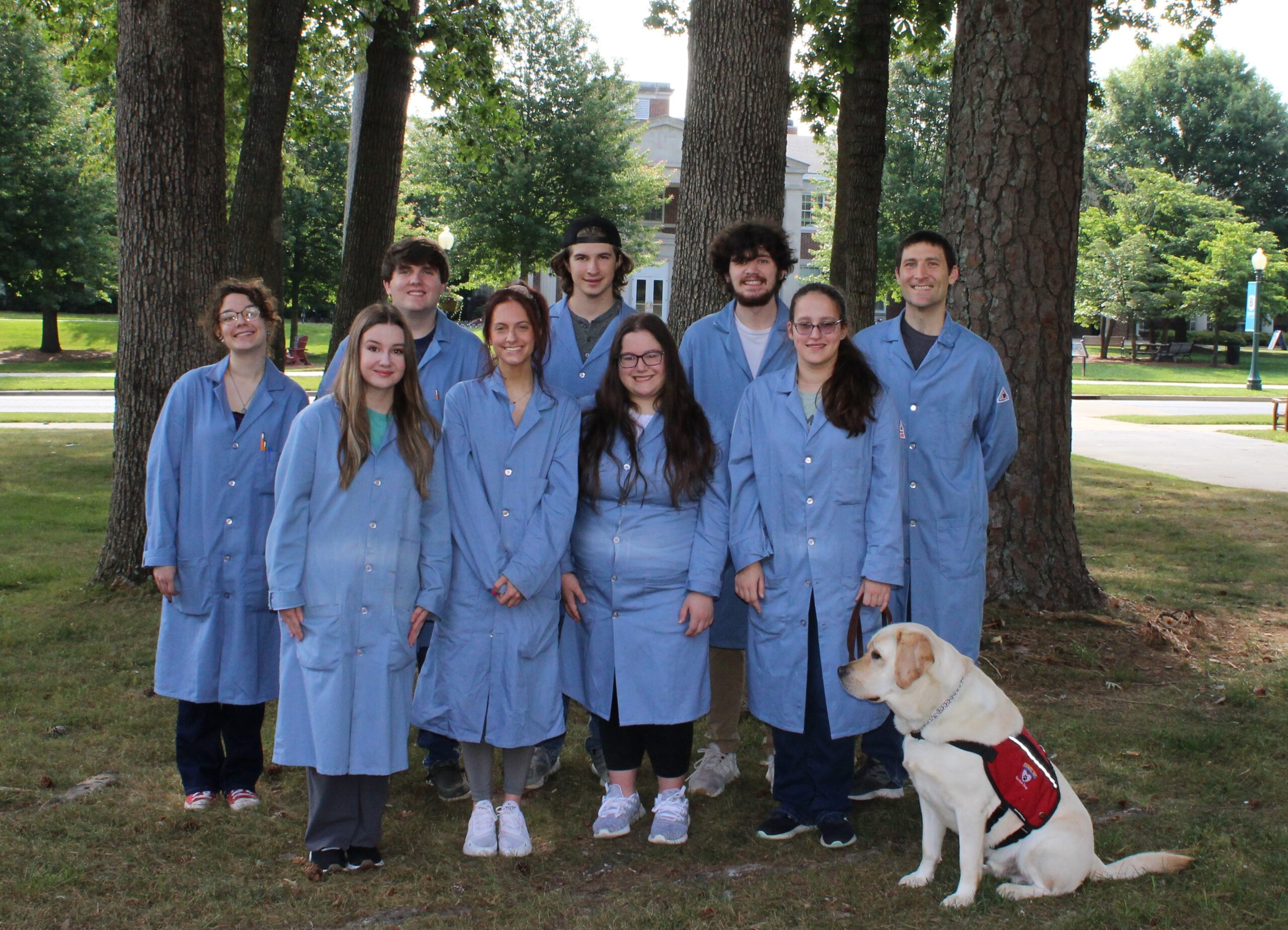
Welcome to the Turlington Research Group! Our research focuses on organic methodology and medicinal chemistry.
Organic Methodology: Our organic methodology projects span two broad areas: 1) Synthetic methods to prepare useful molecular structures commonly found in pharmaceuticals. Here our goal is to help reduce the synthetic limitations that impede medicinal chemists from investigating novel molecular architectures in drug molecules. Current work in our group explores the development of methodology for the synthesis of chiral amines and chiral aza-heterocycles. 2) Improved methods for the synthesis of metallopolymers. Metallopolymers have diverse applications in biomedicine (for example, stimuli responsive drug delivery systems), heterogeneous catalysis, and energy storage. Our goal is to provide efficient methods to produce a variety of metallopolymers with well controlled polymeric size and dispersity to help advance the use of metallopolymers in their many areas of application.
Cystic Fibrosis Medicinal Chemistry: In collaboration with Professor Stephen Aller of the University of Alabama, Birmingham we are exploring the synthesis of new drug-like molecules for the treatment of Cystic Fibrosis. The past few years have witnessed remarkable breakthroughs in new medicines that treat the underlying causes of Cystic Fibrosis. Despite these advances, the average life expectancy for those inflicted with Cystic Fibrosis is still only ~40 years. Our work seeks to build on these recent breakthroughs to help discover the next generation of Cystic Fibrosis therapeutics.
Anticancer Medicinal Chemistry: In collaboration with Professor Jun Yin of Georgia State University we are exploring new classes of molecules capable of selectively degrading target proteins. These molecules are known as proteolysis targeting chimeras (PROTACs). PROTACs are an exciting new strategy in drug discovery, as several PROTAC-based drugs have recently entered clinical trials. Our work seeks to apply this promising new technology to degrade previously “undruggable” oncoproteins implicated in cancer.